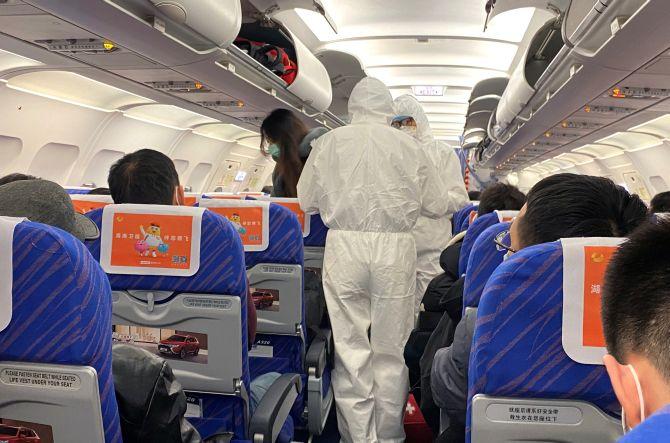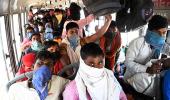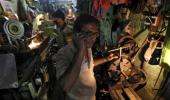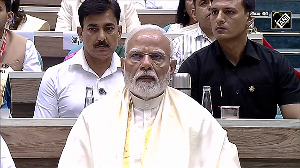Empty middle seat, no duty-free shopping to be new normal till WHO all-clear.

From planes flying at almost half the capacity to no duty-free shopping at airports, aviation in the post-lockdown period is going to be tough.
Indian airlines and airports will have to comply with strict social distancing norms until the corona virus pandemic is over, according to a set of protocol that the regulator is framing.
Airlines will have to follow the guidelines till the World Health Organization gives an all clear signal.
Estimates suggest that the aviation industry may have to grapple with the stringent rules for several months after the services resume.
The government is likely to remove the ban in phases for both domestic and international flights in order to prevent crowding at airports.
The Standard Operating Procedure, being formulated by the Directorate General of Civil Aviation (DGCA), will make it mandatory for airlines to keep all middle seats and last three rows empty to minimise contact.
This means for a 186-seater Airbus A320 jet, that the country’s largest airline IndiGo flies, only 106 seats can be sold.
“While keeping the middle seat empty is important to ensure social distancing inside the aircraft, the last three rows will have to be kept empty in order to isolate a passenger if he or she develops symptoms mid-air,” said a government official.
Airlines will also be asked to minimise on-board services in order to prevent close contact between cabin crew and passengers.
Pre-packaged dry foods will be kept in passenger seats prior to boarding while airlines may encourage flyers to carry their own food.
In order to prevent crowding across airports, the regulator is mulling drastic measures including ban of duty-free sales.
Other measures will include boarding of only three rows at a time to prevent queue near boarding gate or aerobridge.
Airports will have to ensure a two-metre distancing during check-in and security check.
“It’s easy to maintain social distancing in open spaces.
"But in confined spaces like aircraft, it’s important to take some measures to allow a degree of separation,” the official said.
Indian airports will also be asked to make thermal checking of passengers compulsory and limit customer touchpoints.
“Thermal screening of all passengers will be there for some time until the virus is declared controlled. Airports will be asked to take suitable steps,” a health ministry official said.
Industry executives argued that such stringent measures will make it unviable for the airlines to operate and may logically push up fares significantly.
However, with low demand for travel, any drastic increase may be a challenge.
According to aviation consultancy firm CAPA, India’s aviation industry is expected to post losses of $3-3.6 billion in the June quarter because of the coronavirus outbreak.
Falling demand would leave Indian carriers with 200-250 surplus planes over the next 6-12 months, it said.
“It’s better to keep the aircraft grounded than operate with 80 seats less. Airlines didn’t make money with aircraft 90 per cent full,” said an airline official.
“If I was flying 180 seats between Delhi to Mumbai charging a minimum fare of Rs 5,000, reduction of 80 seats will mean that the minimum fare should be Rs 10,000. In such times, who will pay that to fly,” the official asked.
Photograph: David Stanway/Reuters












 © 2025
© 2025